Current UCCRI Grant Recipients
A Journey to Safety and Belonging: Narratives of Asylees
-
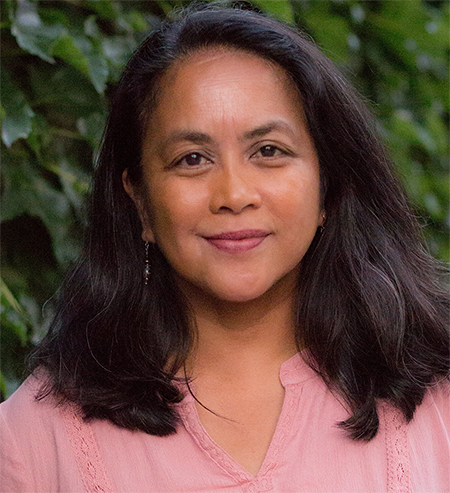
Maria Ferrera
- Principal Investigator
- Associate Professor of Social
- Work, Critical Ethnic Studies,
- Co-Director of the Center for
- Community Health Equity
- View Bio
-
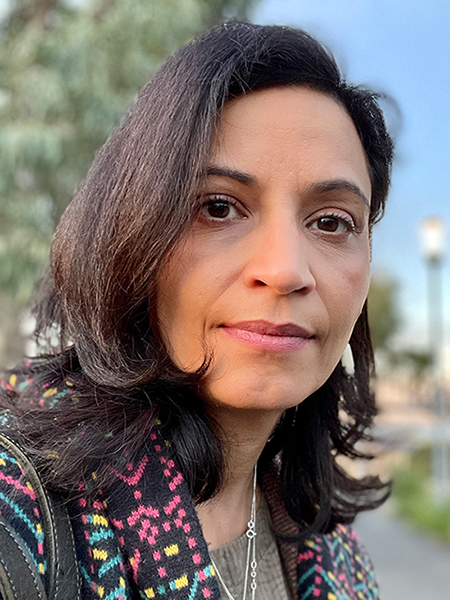
Anuradha Rana
- Principal Investigator
- Vincent DePaul Associate
- Professor of Film, and
- Co-Chair, Documentary
- Program, School of
- Cinematic Arts
-
View Bio
This project centers the narratives of asylum seekers through the medium of documentary film. Due to political, economic, and environmental instability, nearly 1.6 million people in the US seeking asylum are waiting for their case to be heard in immigration courts - the largest backlog of asylum seekers on record (TRAC Immigration, 2022). In response to the increase of migrants on the southern border, Texas Governor Greg Abbott has bused thousands of migrants to “sanctuary cities” often without warning and planning.
Chicago alone has welcomed over 45,000 new migrant arrivals since late 2022. Considered “political pawns,” the human stories of these asylum seekers are overshadowed by the sheer mass number crossing the southern border and the ongoing political rhetoric and debate that surrounds their arrival and whether they belong in the US. The use of documentary film can effectively bring to light the historical antecedents of the asylum process in the US that considers a humanitarian perspective of the migrant crisis and deepen understanding of why migrants flee their country of origin and what follows after asylum is granted – their stories of struggle, survival, resilience, and success.
Knowable Communities Need Knowable Neighbours: Building Urban Social Capital and Social Infrastructure
-
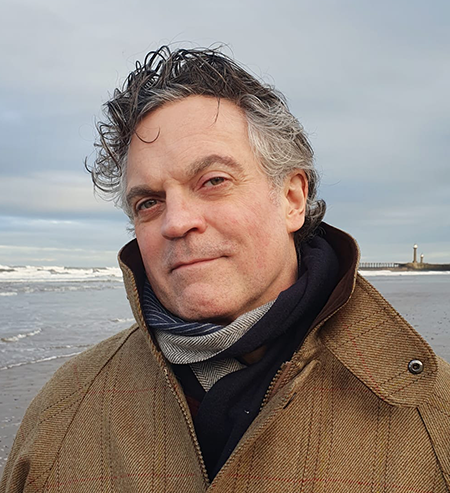
Black Hawk Hancock
- Principal Investigator
- Associate Professor,
- Department of Sociology
- View Bio
Dissolving public spaces disconnects people from their communities, leading to the fraying of social trust between people, groups, and institutions. The result is the disengagement in civic and political participation and the erosion of social cohesion.
Grow Social Capital (GSC), an urban community organization in Cardiff, Wales, seeks to counter these trends by cultivating opportunities and developing tools for social interaction and community engagement. As opposed to outsiders imposing their views upon others, through a multi-methodological approach, we engage local residents in identifying their own forms of social capital for civic democratic activity to take root.
2023-2024 Recipients
Understanding the Continued Presence of National Single-Family Rental Landlords in Chicagoland
-

Amanda Kass
- Principal Investigator
- Assistant Professor, School of Public Service
-
View Bio
In the 2000s, a foreclosure crisis led to millions losing their homes, wiping away billions of dollars in housing-based wealth in the United States. Large-scale, “institutional landlords” seized on the moment by buying foreclosed properties and converting them to rentals, leading to an expansion of the single-family rental market. Using a mixed-methods approach, this project will examine the activity of two large institutional landlords in Chicagoland and the characteristics of communities where these companies continue to own real estate. This research, done in partnership with the Metropolitan Mayors Caucus and DePaul's Institute for Housing Studies, will illuminate the staying power of the institutional landlord business model and its impacts on local housing markets.
For more information about Dr. Kass’s work, see Examining the Role of Corporate Landlords in the Chicago Region.
Investigating False Alerts Related to At-Home Electronic GPS Monitoring
-

Sungsoon (Julie) Hwang
- Principal Investigator
- Professor, Department of Geography and GIS
-
View Bio
There has been a dramatic increase in false alerts of people monitored breaking house arrest as Illinois moves more people onto at-home monitoring using GPS technology instead of incarceration. This is potentially due to ‘GPS drift’ affected by building materials, urban density, and other factors. False alerts have mental health impacts as well as potential legal impacts as people affected must prove that they did not break at-home monitoring or face re-incarceration. The project will assess the plausibility of GPS drift being the primary cause of false alerts in collaboration with the Illinois Network for Pretrial Justice.
2022-2023 Recipients
Brain Injury, Strangulation and Intimate Partner Violence: Providers Speak Out
-
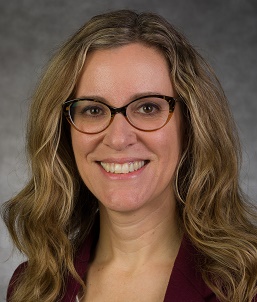
Sonya Crabtree-Nelson
- Principal Investigator
- Associate Professor, Social Work
-
View Bio
-
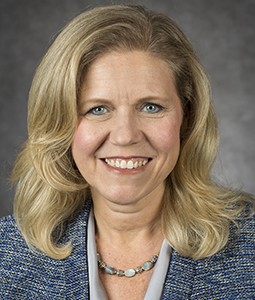
Dorothy Kozlowski
- Principal Investigator
- Vincent de Paul Professor of Biological Sciences and Neuroscience
-
View Bio
This study – in partnership with The Network: Advocating Against Domestic Violence – aims to deepen our understanding of the intersection of brain injury, strangulation, and intimate partner violence (IPV), commonly known as domestic violence. Unfortunately, the impact of brain injury due to physical abuse and strangulation is not well known to survivors of IPV, nor to those who provide assistance to survivors through agencies and hospitals. Data regarding this intersection and how to address it is sparse, even though we currently know that as many as 27-30 million survivors of IPV are affected by brain injury in the United States alone. Services to assist survivors typically do not address the symptoms they may be experiencing from brain injury, nor do programs adapt their services to consider the impact these symptoms may have on their ability to access and benefit from them. In this project, the Illinois Coalition to Address Intimate Partner Violence-Induced Brain Injury (founded by Drs. Crabtree-Nelson and Kozlowski) and The Network are taking steps to address this issue. We will be offering online and in person trainings on brain injury, strangulation, and IPV to area organizations who work with survivors. We will then be conducting focus groups after the trainings with the aim of finding out what (and if) the organizations are currently assessing related to brain injury, whether they have an idea regarding the impact of brain injury on those they serve, and what tools, support, and information they need to make appropriate accommodations and referrals for survivors with brain injury. We will then report back to The Network and its member organization as to the findings to begin to identify steps needed to address the intersection. Our work will be presented locally and nationally as well as prepared for publication.
Since winning a UCCRI award in 2022, Drs. Crabtree-Nelson and Kozlowski have continued their research into traumatic brain injury and domestic violence, recently receiving a $60,000 grant from the Michael Reese Health Trust to support their work.
Small Developers Operating in the Distant Fringes of Urban Society: Serving the Underserved & To What Effect?
-
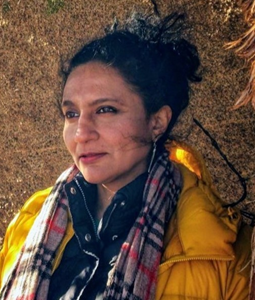
Ramya Ramanath
- Principal Investigator
- Associate Professor, School of Public and Forced Migration Studies
-
View Bio
Most of what is deemed affordable housing for low-income groups in India is erected in far-flung peripheries of its cities. Nearly all such housing is constructed on private land by real-estate developers who, for all practical purposes, contribute to the entire housing stock in the country. Although extant research describes housing developments in peripheral areas, most of it is based on single or dual case studies of large-scale projects undertaken by high-end formal developers/contractors. Little is known about smaller developers/contractors, many of whom operate in the space between formal and informal systems. Focusing on India’s fourth largest metropolitan city of Chennai, this research (undertaken in cooperation with the Indian Housing Federation) will reveal and nuance the voices, perspectives, and experiences of multiple small private developers operating in Chennai's peri-urban frontiers. A description of the decision-making processes in urban expansion could begin almost anywhere! This research, however, treats the developer as the point of departure i.e., the creator who transforms raw land into residential units.
Building on Neighborhood Resilience through Precision Data
-

John Mazzeo
- Principal Investigator
- Associate Professor, Public Health
-
View Bio
This project aims to provide BUILD, an Austin-based neighborhood organization focusing on youth, with health systems data from Rush University Medical Center – the health system that primarily serves the Austin neighborhood. BUILD is a comprehensive youth service organization with over 53 years of experience delivering services to Chicago’s young people. The goal is for BUILD to identify and leverage key health metrics around mental health captured by Rush's patient database to assess an existing program, Building Girls 2 Women (BG2W), and to explore opportunities for its expansion. BG2W focuses on high-risk teen girls who experience the trauma. It combines intensive mentoring from women who have experienced the same challenges with regular counseling with trained professional therapist. The analysis of mental health data compares geographic areas of Chicago where BG2W is active with similar areas without the intervention. The data are also analyzed to explore change in the intervention areas before and after the rollout of BG2W. Neighborhood organizations are often restricted by limited data to support and direct initiatives. The findings of this project will provide BUILD with precision health data to help it make best use of its resources, assess interventions, and identify the need for its services.
2021-2022 Recipients
Pretrial Requirements as Racialized Net-Widening?
-

Traci Schlesinger
- Principal Investigator
- Associate Professor, Sociology
-
View Bio
This study—a partnership between the Baltimore Action Legal Team (BALT), Baltimore Court Watchers (BCW), the Community Justice Exchange (CJE), and Dr. Schlesinger—will gather data using community and student court watchers to assess the effect of pretrial requirements that many jurisdictions have enacted as they work end or limit cash bail. While pretrial requirements may provide some services, like mental health treatment, they also serve as surveillance and set requirements that are difficult for many defendants to meet. The study therefore seeks to answer the following questions: 1) Has the percent of defendants given pretrial requirements in Baltimore changed from 2017 to the present? 2) If so, are these shifts associated with changes in pretrial policy? 3) Are defendants’ race, ethnicity, gender, age, most serious charge, or prior criminal legal history associated with whether and what kinds of pretrial requirements they receive? 4) If so, in what ways? Having answers to these questions will help community organizations form evidence-based policy positions and effectively lobby for these policy or legal changes.
In December 2021, Dr. Traci Schlesinger passed away before completing her project. The Urban Collaborative and the entire DePaul community extend our heartfelt condolences to her family, friends, colleagues, students, and all whose lives she touched.
Designing for Just Green Enough: Greening without Gentrification
-
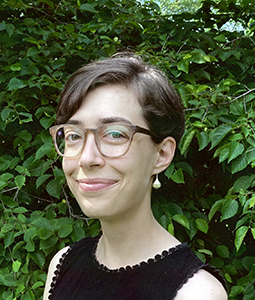
Michelle Stuhlmacher
- Principal Investigator
- Assistant Professor, Geography and GIS
-
View Bio
-

Winifred Curran
- Principal Investigator
- Professor, Geography
-
View Bio
This study attempts to solve an environmental justice paradox: How can we improve equity in greenspace access without displacing the very residents the increased greenspace is intended to benefit? This tension is currently playing out in Pilsen, where 25th Ward Alderman Byron Sigcho-Lopez is looking to combat the prospect of green gentrification without sacrificing the benefits of potential new greenspace. The “just green enough” approach posits that it is possible to accomplish real environmental improvements without gentrification when communities are substantively engaged. To this end, the team will conduct a spatial analysis of greenspace in Chicago, calculating a vegetation index from satellite imagery to quantify both formal and informal greenspace, expanding upon previous effort that have largely considered only formal greenspace (i.e., parks). Next, they will support the Pilsen community in conducting a series of community visioning workshops to provide qualitative information on what type of greenspace residents would like to see and where. Finally, the team will synthesize the findings in a report for the community members (in English and Spanish) and an academic article. The Pilsen case will serve as a collaborative and interdisciplinary pilot project that can be replicated citywide, and beyond.
Since winning a UCCRI award in 2022, Drs. Curran and Stuhlmacher have expanded upon their initial research with a
$250,000 grant from NASA to provide community leaders accurate data to help them fight for environmental justice.